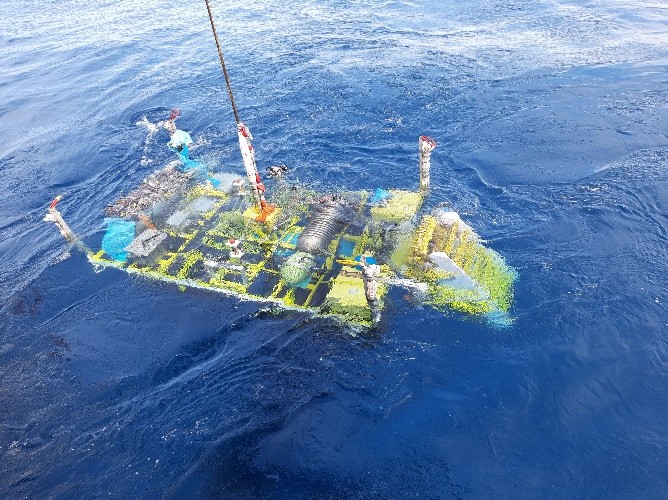This week’s environment and conservation news stories rolled into one.
Subscribe to our YouTube channel to watch the latest high quality, original video stories from nature’s frontline in India.
To receive a weekly email roundup of stories, please sign-up for our newsletter.
India advances with deep-sea mining technology
The National Institute of Ocean Technology, conducted a successful exploratory mining trial in October in the Andaman Sea, for obtaining polymetallic nodules from the seabed.
Indian scientists are showing an interest in advancing solar geoengineering research
Solar geoengineering is a controversial technology with the potential to block some of the sun’s radiation and cool the planet.
‘Red alert’ as temperatures cross 1.5 degrees for 16 months straight
The abnormal warming this year was boosted by a strong El Nino, and will result in both 2023 and 2024 being the two warmest on record.
Climate action needs cities and cities need funds
Cities contribute 70% of global carbon emissions while also facing climate-related impacts. Experts at the ongoing COP29 and urban leaders have advocated for stronger inclusion of subnational goals in the next Nationally Determined Contributions.
Urban leaders are calling for increased public investment in funding cities to meet climate goals.
Talks on climate finance deadlocked in Baku summit as G20 nations meet in Brazil
Delays in achieving the climate finance goals would lead to costs spiking more in the future.
Developing nations demand public grants, not loans, at COP29 finance talks
Developing and least developed countries highlighted the climate debt trap arising from loans and demand grants instead.
New king cobra study makes hisss…tory
A new study has revealed that the world’s longest venomous snake, the king cobra, is not a single species, as previously thought, but rather four genetically distinct species.
Loss and damage funding languishes as costs of climate disasters multiply
Loss and damage due to climate change could cost the global economy $19-$59 trillion a year by 2049, suggests recent research.

Finance and mitigation divide stalls progress at COP29 in Baku
As the climate conference COP29 in Baku draws to a close, developed and developing nations remain divided over climate finance and mitigation.

[Commentary] The risk of a potential circulation change in the Atlantic adds to climate worries
Scientists warn that the Atlantic Meridional Overturning Circulation, a system of ocean currents crucial for global climate stability, is weakening faster than previously thought. The weakening of the AMOC could trigger extreme weather, disrupt rainfall patterns and harm marine ecosystems.
Delivering a trillion dollars in climate finance is doable, experts say
Rich countries have typically pushed back committing to pay large sums, but a growing tribe of economists and climate finance experts are now backing this demand, saying it “is absolutely possible,” to deliver it.

Adaptation is key as India stares at GDP loss due to climate change
An Asian Development Bank report warns of severe climate change impacts in Asia Pacific, resulting in a 17% GDP loss by 2070.









